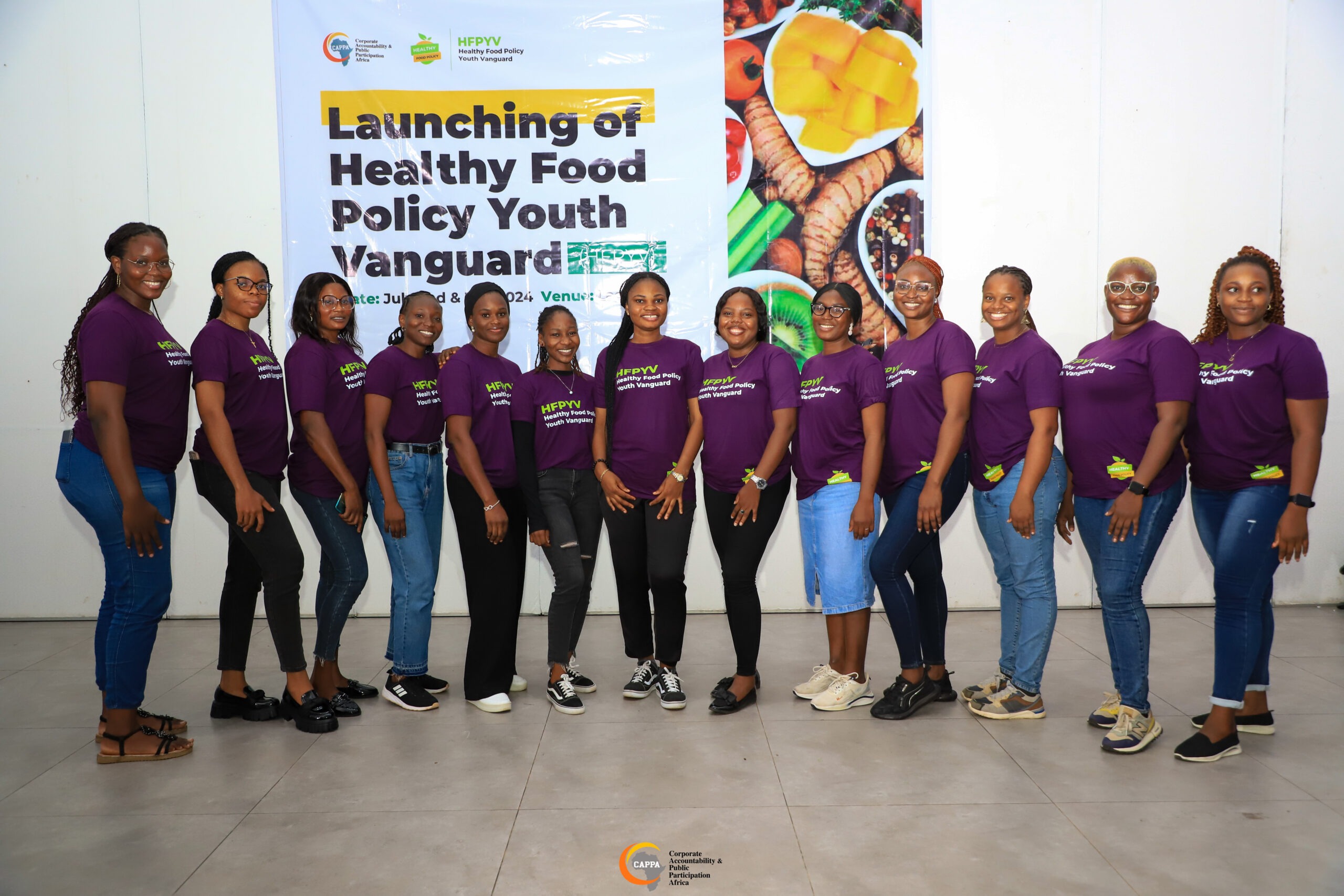The Healthy Food Policy Youth Vanguard (HFPYV) has urged the Minister of Youth Development, Comrade Ayodele Olawande, to support stakeholders’ call for the federal government to raise the tax on Sugar-Sweetened Beverages (SSBs) from N10 per litre to N130 per litre, in the interest of public health.
HFPYV, a volunteer group of young Nigerians who advocate for food justice and public health, described the SSB tax as a pro-people and pro-health policy necessary to shield the youth from the alarming rise in noncommunicable diseases caused by excessive consumption of sugary drinks.
In a statement signed by Afeez Adebayo on behalf of the group after its meeting with the minister, HFPYV warned that the sugary drinks and ultra-processed food industry is targeting Nigeria’s teeming youth population with unhealthy food products backed by misleading advertising that manipulates them into forming harmful dietary habits, so the industry can make more profits.
The group said the buy-in of the Ministry of Youth Development, which is Nigeria’s leading government organization empowering young Nigerians, is key to checking this indiscriminate exposure of the youth to unhealthy food and drink choices that can jeopardise that future.
“We are calling the attention of the Honourable Minister of Youth Development, Comrade Ayodele Olawande to a disturbing trend of food corporations relentlessly targeting young Nigerians with unhealthy, Sugar-Sweetened Beverages and ultra-processed foods that are generally high in sodium and sugar, the excessive consumption of which erodes health.
“This trend, which prioritises their profits over the health of Nigerians, is creating a culture of unhealthy dietary habits among the youth, which is exacerbating the country’s rising burden of debilitating non-communicable diseases (NCDs), including cardiovascular diseases (CVDs), cancers, and diabetes, that are responsible for nearly 30 per cent of all deaths in Nigeria annually,” HFPYV said.
It added that experts are already warning that many of our traditional dishes are going extinct because many young people, having been enticed to embrace these unhealthy diets, no longer know how to grow or prepare the plants necessary for these local healthy delicacies.
According to HFPYV, the unhealthy diet crisis is costing the country invaluable manpower and productivity loss due to hospitalisation and chronic disability of NCD victims.
“Additionally, NCDs also cause a large financial burden on households from out-of-pocket (OOP) healthcare expenditure and productivity loss from hospitalisation. The latest data from the National Health Accounts show that, on average, a Nigerian household with NCDs spends the equivalent of $398.52 per year on NCD care, while in general, Nigerians spend the equivalent of about $1.26 billion annually treating NCDs, deepening many families into financial difficulties.
“These are particularly worrying data because, according to Worldometer, about 70 per cent of the Nigerian population is under 30 years old, while 42 per cent are under 15. This makes us one of the countries with the largest youth populations in the world, whose youthful energy should be an asset in our quest for national development rather than a market for corporations to exploit for profits at the expense of people’s lives.”
The group said these, and more, point to the need for urgent measures by the government, including the Ministry of Youth Development, to protect the youth.
It explained that one proven measure is the SSB Tax introduced by the Federal Government to address the health issues arising from excessive consumption of sugary drinks.
HFPYV added: “Embedded in the Finance Act of 2021, the Act set a N10 levy for every litre of carbonated drinks and non-alcoholic drinks. The N10 levy meant, for instance, that for every 50 centilitres of carbonated drinks consumed, the Federal Government gets N5, expected to be utilised to strengthen the healthcare sector to, among others, cater for those who have health challenges arising from SSB consumption.
“However, a 2024 study endorsed by the Federal Ministry of Health and Social Welfare found that the N10 per litre, which was imposed when a bottle of soft drink was about N150, is grossly inadequate to curb excessive consumption. A bottle is now between N350 and N450n on average. The study called on the federal government to increase the tax imposed on SSBs from N10 to N130 per litre or by any rate that is not less than 20 per cent of the product’s retail price.
“Apart from discouraging excessive consumption of sugary drinks, the report further found that a N130 per litre SSB Tax would amount to about N729 billion in additional revenue for the federal government, which it could strategically allocate through earmarking to strengthen the country’s healthcare system, particularly basic healthcare, which currently grapples with inadequate funding, especially for diet-related diseases.
“It is worth noting that recently, global experts, including Prof Muhammad Ali Pate, Nigeria’s Coordinating Minister of Health and Social Welfare, advised countries to have a minimum of 50 per cent tax rate on unhealthy foods including SSBs, adding that this could help avert over 50 million premature deaths worldwide over the next 50 years. The report of the Bloomberg Task Force on Fiscal Policy for Health also advised that the revenue generated from these taxes be ploughed back into healthcare.”
HFPYV was launched on July 3, 2024, by Corporate Accountability and Public Participation Africa (CAPPA), as an initiative to equip young advocates with the knowledge and skills necessary to raise public awareness about healthy diets and lead conversations on food justice. Its goals include advocating policies to address food insecurity and malnutrition, championing healthy food policies through social media campaigns, grassroots mobilization, and stakeholder engagement, and to co-design advocacy strategies that reflect the realities of vulnerable populations while promoting access to healthy, affordable food, prioritizing the health of Nigerians over corporate profits, and ensuring that the right to healthy food is protected.

